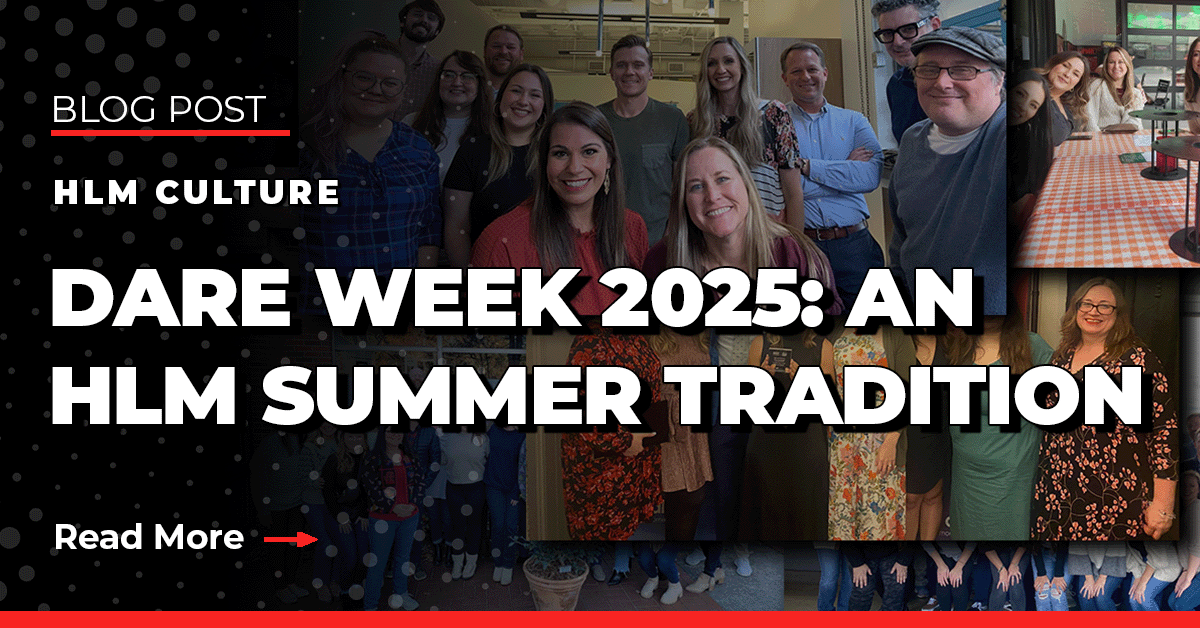![]() By Chris Brown
Jul 27, 2023 9:03:18 AM
By Chris Brown
Jul 27, 2023 9:03:18 AM

Changes to Google’s search algorithms and search result pages should be high on our priority list in 2023. Here are some key updates to understand and address to keep your website driving traffic for your small or medium-sized business in 2023 and beyond.
Domain Authority is The Wrong Focus 🔎
Are you worried about your website’s Domain Authority? Google has stated many times that Domain Authority is not a metric they use and not a factor in search rankings.
Domain Authority, or DA, is a search engine ranking score developed by Moz that predicts how likely a website is to rank in search engine results pages. Content marketing and Search Engine Optimization (SEO) have long used Domain Authority as a simple measurement of a site’s authority to judge the quality of links and content from the domain.
In reality, the quality of a domain encompasses a large number of factors outside of just DA. Domain Authority is a very narrow judgment of a domain’s backlink metrics, which is just one metric within hundreds of potential ranking factors.
The context in which a website operates and the relevance of its content to a specific niche or target audience are crucial considerations for search rankings. A website that specializes in a specific niche and consistently produces high-quality, relevant content can establish authority and attract organic traffic, regardless of its Domain Authority score. The emphasis has shifted towards providing value to the target audience rather than relying on an overarching domain authority metric, which is indicated by the number of algorithm updates surrounding content and its importance to your overall rankings.
Google wants to show its users the best possible results for their searches, and that means prioritizing websites that offer great content and a seamless browsing experience. While domain authority can be an indicator of a website's trustworthiness and authority, it doesn't necessarily correlate with the quality of the content on the site.
As Google continues to refine its algorithm, websites need to focus on delivering high-quality, relevant content, optimizing user experience, and focusing on local listing signals. By embracing a more holistic and user-centric approach to SEO, websites can adapt to the changing landscape and achieve sustainable, long-term success in search engine rankings.
Backlink Values Diminish and Content Importance Skyrockets 🚀
In December 2022, Google introduced a significant Link Spam Update aimed at combating the pervasive issue of link spam. This update has brought about noteworthy changes in the way backlinks are assessed and valued by the search engine giant.
Google has become more discerning when it comes to evaluating the quality of backlinks, emphasizing the importance of contextual relevance and reputation. Backlinks from reputable websites with related content now hold greater weight in search engine rankings, providing a more accurate representation of a website's authority and trustworthiness. The update also targets spammy techniques such as link exchanges, paid links, and link schemes that are commonly employed to manipulate search rankings. These paid links are being ignored by Google when evaluating a website.
Building a strong brand and establishing industry authority have become pivotal factors in Google's search algorithm. In today’s search space, businesses gain search visibility through high-value content and other proven SEO tactics – not their backlink profile. We recommend focusing marketing budgets on creating relevance for your website with strong and diverse content including blogs, FAQs, and location- and keyword-focused products and service pages.
Preparing For The Google Search Generative Experience 🤖
The future of Google Search is here and being tested by industry experts, including our HLM search teams. Google's Search Generative Experience will have a significant impact on small and medium-sized businesses. This new approach to search results provides users with more detailed and dynamic information generated with AI directly on the top of the search engine results page (SERP), reducing the need for users to click through to individual websites. While this shift has its benefits for users, it presents challenges for small businesses trying to drive traffic and conversions.
For many local businesses, the Google AI-generated experience prominently displays business listings, similar to an expanded local pack, with a map of results and a small group of links to websites. Interaction in this space is with Google’s business listings rather than a business’s website.
Here are some key impacts:
- Decreased Click-Through Rates (CTR): With the generative experience, users can find answers to their queries without clicking on specific search results. As a result, small businesses may experience a decline in organic CTR, leading to reduced website traffic and potential missed opportunities for conversions.
- Heightened Competition: Small businesses now have to compete not only with other websites but also information provided directly on the SERP. Google's generative experience pulls information from various sources, including Google Business Profiles, local listings and citations, and review-focused sites. This increased competition makes it harder for small businesses to stand out and capture user attention.
- Importance of Optimizing for SERP Features: To adapt to the generative experience, small businesses need to focus on optimizing their content for SERP features such as featured snippets, knowledge graphs, and local packs. By providing comprehensive and relevant information in these formats, businesses can increase their visibility and capture user attention even without a click-through.
- Enhanced Local Search: For small and medium-sized businesses that rely on local customers, the generative experience emphasizes the importance of optimizing your local presence. Local listings and maps are prominently displayed, making it crucial for small businesses to ensure their business information is accurate, up-to-date, and optimized for local search queries.
- Reviews Are Crucial: Because this new generative search space relies on local business listing information, similar to the local pack, reviews carry an even greater importance and they are a crucial ranking factor for local business results in the SERPs. We often see review text utilized in the new search experience, highlighting business reviews to match up with user queries. It’s important to have a healthy review profile, including your star rating, drive continual review generation and actively respond to Google reviews. Even responding to negative reviews impacts how potential clients view your business.
How Can Businesses Adapt To Changes With Google Search? 💡
Addressing Google's search generative experience updates requires SEO professionals to focus on providing valuable, user-centric content that aligns with the changing search landscape.
- Optimize for Featured Snippets: Featured snippets play a prominent role in the search generative experience, as they often provide direct answers to user queries. To capitalize on this, identify relevant keywords and create well-structured, concise content that provides clear answers to common questions in your niche. Utilize headings, lists, and tables to make your content more snippet-friendly.
- Improve Website Speed: The generative experience emphasizes user-centric results, and website speed is critical in delivering a positive user experience. Optimize your website's loading times by compressing images, leveraging browser caching, and minimizing HTTP requests.
- Focus on Structured Data: Implementing structured data using Schema markup can help search engines better understand the content on your website. This can increase the likelihood of your content being included in rich snippets, knowledge graphs, and other SERP features.
- Enhance Local SEO: For businesses targeting local customers, optimizing for local search is essential in the generative experience. Ensure your Google My Business listing is complete and accurate, with up-to-date contact information, operating hours (making sure to outline any holiday and emergency hours so that your potential customers know when you are available for service), and customer reviews.
- Create Engaging Content: To stand out in the search generative experience, invest in creating high-quality, engaging content that provides unique value to users. Content that educates, entertains, or solves problems will encourage users to click through to your website.
How Do You Gain Clarity as Google Changes? 🔮
Google's Search Generative Experience is changing the way businesses need to approach SEO, with a greater focus on:
- Optimizing for featured snippets
- Improving website speed
- Implementing structured data
- Enhancing local SEO
- Creating engaging content
By embracing these changes and focusing on delivering value to users, businesses can adapt to the evolving search landscape and achieve long-term success in search engine rankings.
High Level Marketing is at the forefront of understanding each update Google makes that impacts your business. You need a partner in your digital marketing campaigns that evolves not just with Google changes, but also with your industry, your market, and your business. Reach out to HLM today to learn more about how we create success with SEO, Paid Search, and web development for small businesses.
Author: Chris Brown
Contact Us NowRecent Posts
When you're done with this post, check out our other content below for more Digital Marketing expertise
Contact Us Today
Complete the form below and receive a call within minutes.
Need faster results? Call us now at (888) 717-4249





